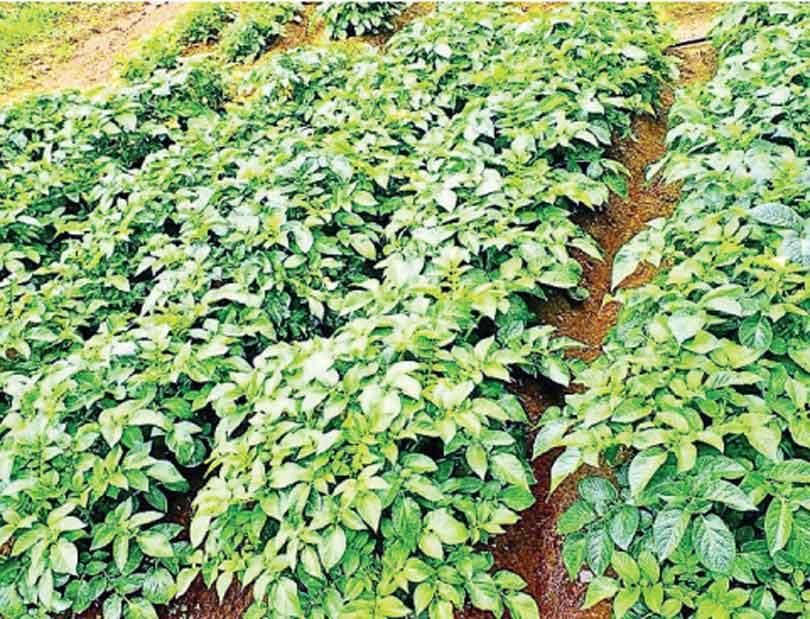Reply To:
Name - Reply Comment

Baurs super urea potato trial
In October 2019, Sri Lanka, in partnership with the United Nations Environment Programme, embraced the Colombo Declaration under the title ‘Nitrogen for Life’, adopted by the 15 member states to create road maps that will halve nitrogen waste by 2030.
This was further reaffirmed when Sri Lanka, with the support of the International Nitrogen Management System (INMS), proposed the ‘Resolution on Sustainable Nitrogen Management’ at the fifth UN Environment Assembly last year, to champion the cause for sustainable nitrogen use on planet Earth.
The global economy–wide nitrogen use is highly inefficient, with extremely large proportion of it being lost to the environment. The current mismanagement and overuse of nitrogen has led to various negative effects on land, water, biodiversity, human health and air, all leading to worsening climate change impacts.
A. Baur & Co. (Pvt.) Ltd, also known as Baurs, a name synonymous with the agriculture industry of Sri Lanka, took the lead initiative in 2018 to pioneer super urea, a nitrogen dual stabiliser to reduce both ammonia volatilisation and nitrification of nitrogen fertilisers in the soil. These stabilisers improve the efficiency of nitrogen fertiliser application, minimise nitrogen losses and enhance crop yield while reducing environmental impact. Ever since then, Baurs, together with renowned agriculturists and academia from the Faculty of Agriculture, University of Peradeniya and the Agriculture Department Sri Lanka, has been conducting pilot testing on crops with the super urea and following the success of the effectiveness of nitrogen stabilisers, which are also influenced by factors such as soil type, climate and crop type, Baurs has recently announced that it will now engage in commercial sales of super urea.
The super urea keeps more nitrogen in a form that can be utilised by plants and possess nitrification inhibitors, which retains more nitrogen in the ammonium form for a longer period. This can enhance nitrogen use efficiency and reduce the risk of nitrogen leaching. This can help farmers optimise the use of nitrogen fertilisers, reduce environmental impact and promote sustainable farming practices.